
Christopher Crockett
Associate News Editor
Christopher Crockett is an Associate News Editor. He was formerly the astronomy writer from 2014 to 2017, and he has a Ph.D. in astronomy from the University of California, Los Angeles.

Trustworthy journalism comes at a price.
Scientists and journalists share a core belief in questioning, observing and verifying to reach the truth. Science News reports on crucial research and discovery across science disciplines. We need your financial support to make it happen – every contribution makes a difference.
All Stories by Christopher Crockett
-
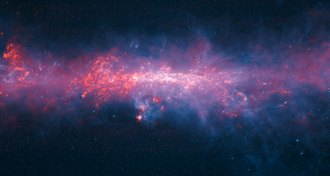 Astronomy
AstronomyThere’s far more to the galaxy than meets the eye
A new map of the galaxy as seen in submillimeter light reveals intricate details from nearby nebulas to the far-flung galactic center.
-
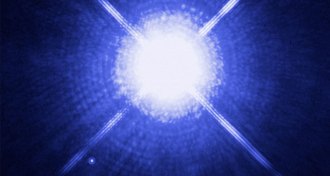 Astronomy
AstronomyOdd white dwarf found with mostly oxygen atmosphere
A white dwarf that has been stripped of its hydrogen and helium provides a rare peek inside the core of a dead massive star.
-
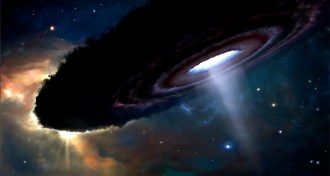 Astronomy
AstronomyThis eclipse goes on and on
The longest known stellar eclipse hides a nearby star for nearly 3.5 years behind a thick clump of orbiting dust once every 69 years.
-
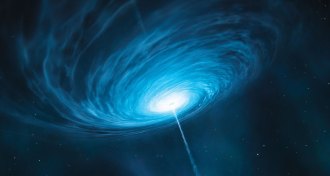 Astronomy
AstronomyEarth’s hurricanes have nothing on this quasar
In a remote galaxy, a cosmic hurricane around a supermassive black hole is driving winds at nearly 20 percent of the speed of light.
-
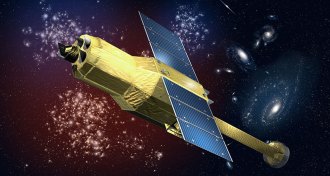 Astronomy
AstronomyJapan’s new X-ray space telescope has gone silent
Japan’s newest orbiting X-ray telescope, ASTRO-H, has gone silent and might have broken into several pieces, the Japanese space agency reports.
-
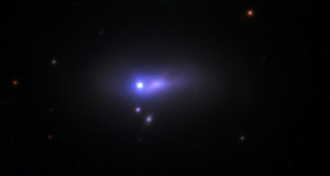 Astronomy
AstronomyCompanion star could have triggered supernova
An exploding star in another galaxy might have been pushed over the edge by a stellar companion.
-
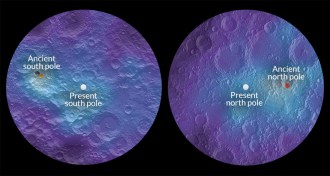 Astronomy
AstronomyThe moon’s poles have no fixed address
Ancient deposits of lunar water ice mark where the moon’s poles used to be.
-
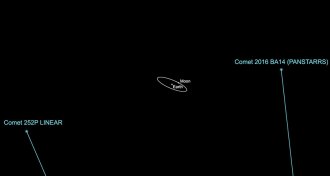 Astronomy
AstronomyTwo chunks of the same comet buzzing Earth this week
Two comets, one a possible fragment of the other, will slip past Earth on March 21 and 22.
-
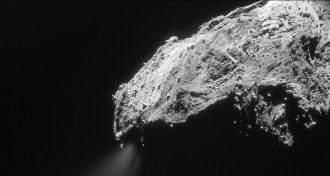 Planetary Science
Planetary ScienceComets carried noble gases to Earth
Asteroids might have delivered water to Earth, but comets could be responsible for noble gases and amino acids, a new study suggests.
-
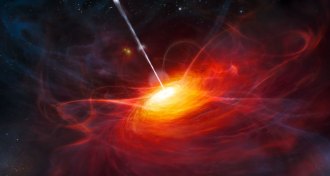 Astronomy
AstronomyQuasars’ distance no longer in question
Astronomers now know quasars live around black holes in remote galaxies, but 50 years ago, one researcher argued they were much closer.
-
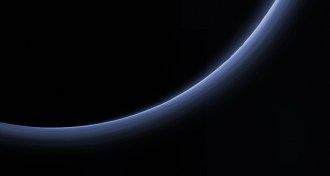 Planetary Science
Planetary ScienceGet your Pluto trivia down cold
Eight months after visiting Pluto, the New Horizons spacecraft has delivered a wealth of details about the dwarf planet and its family of moons.
-
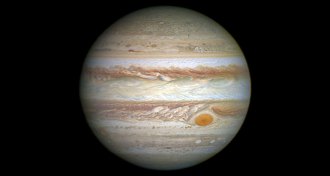 Planetary Science
Planetary ScienceWandering Jupiter could have swept inner solar system clean
If Jupiter formed close to the sun and then wandered out, that might explain why there are no planets interior to Mercury’s orbit.